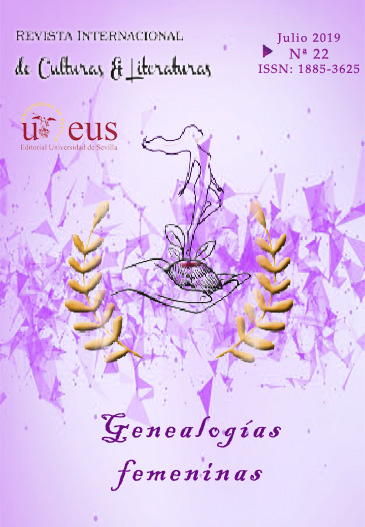Mararía: traces of feminine subjectivation and Canarian identity in Rafael Arozarena's text
DOI:
https://doi.org/10.12795/ricl.v0i22.8890Keywords:
mujer canaria, identidad, franquismo, LanzaroteAbstract
Mararía is a novel published in 1973 by Rafael Arozarena, which became a must-read for all Canarian students who, from its pages, have discovered the life of a woman turned into a legend. Located in Femés (Lanzarote), the place where the woman on whom the novel is based actually lived, in times of the Franco dictatorship, the text portrays the living conditions of the island's population, the articulation of caciquil power and through its protagonist reels off the idea of magical and tragic femininity on which one of the most fascinating female archetypes in Canarian literature will be built. I consider it relevant to carry out a historical and gender analysis that allows us to reflect on the construction of Canarian femininity through one of the fundamental texts of the literature of the islands in the 20th century.
Downloads
References
Anzaldúa, G., Borderlands/ La Frontera: La New Mestiza, Madrid, Capitán Swing, 2016.
Arnal González, S. “La lógica de la ‘pureza’, el mestizaje y la identidad ‘fragmentada’.”, Actas I Congreso internacional de la Red española de Filosofía, VIII, 2015, pp. 29-40.
Arozarena Doblado, R., Mararía, Santa Cruz de Tenerife, Ed. Idea, 2010.
Fernández Agis, D. “Feminidad y brujería: del poder de las brujas al embrujo femenino”, Boletín Millares Carlo, 27, (2008), pp. 307-314.
Guerra Palmero, M. J., “¿Es inevitable el etnocentrismo? Aportaciones feministas a un debate en curso.” Thémata. Revista de Filosofía, 39, (2007), pp. 59-64.
Ibáñez Gracia, T. “Foucault o la ética y la práctica de la libertad. Dinamitar espejismos y propiciar insumisiones”, Athenea digital: revista de pensamiento e investigación social, 14, (2014), pp. 03-18.
Lugones, M., “Coloniality and gender”, Tabula Rasa, 9, (2008), pp. 73-102.
Ortiz García, C., “Islas de ida y vuelta. Canarias y El Caribe en contexto colonial”, Revista de dialectología y tradiciones populares, (2004), pp.195-220.
Reyes Díaz, M. J., Análisis de Mararía, de Rafael Arozarena. (Memoria de Liecenciatura). Universidad de La Laguna, 1984, https://acceda.ulpgc.es:8443/bitstream/10553/4240/1/mararia.pdf Internet. 06-06-2017.
Serrano-Niza, D., “Señas de identidad magrebíes en las Islas Canarias”, Al-Andalus Magreb: Estudios árabes e islámicos, 6, (1998), pp. 77-90.
VV.AA., INNOVA: Cuadernos para la coeducación. Nº 7. Lengua y literatura (secundaria). Programa Harimaguada, Consejería de Educación del Gobierno de Canarias. 1996.

